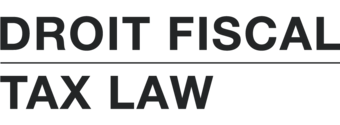
Photo by Chokniti Khongchum
The taxpayer was a corporation carrying on the business of selling and distributing dental products to dentists in Canada, including local anesthetic solutions. 95% of those solutions contained “epinephrine”. Prior to May 2005, the taxpayer sold the anesthetic solutions as “taxable supplies”, meaning that it charged GST. Effective May 1, 2005, it decided to treat the solutions as “zero-rated supplies” and therefore stopped charging GST. The reason presumably for recharacterizing from “taxable supply” to “zero-rated supply” was that it had heard that a competitor was not charging GST. It is only in the latter part of 2008, when it learned of a letter of interpretation from Revenu Quebec treating these solutions as taxable supplies that it reverted back to treating them as such. (In the province of Quebec, Revenu Quebec administers both the GST and QST.)
The taxpayer was reassessed $1,111,930 for unremitted GST, plus interest and penalties. The taxpayer appealed to the Tax Court of Canada, but lost. It then appealed to the Federal Court of Appeal, but also lost.
The taxpayer relied on the case of Le Gardeur to argue that the local anesthetic solutions fell under subparagraph 2(e)(x) of Part I of Schedule VI of the Excise Tax Act (“ETA”) because “epinephrine” was one of the main substances that composed the anesthetic solutions. Réal Favreau J., of the Tax Court of Canada, disagreed:[1]
First, the Le Gardeur case deals with the application of paragraph 2(a) of Part I of Schedule VI of the ETA which is a provision having a different objective from paragraph 2(e). Under paragraph 2(a), the supplies of substances or mixtures of substances are zero-rated if they are used for diagnoses and if they are covered by Schedule D of the Food and Drugs Act. Secondly, the schedule D drugs cannot be found in a container in their pure state, contrarily to the case here where the epinephrine as the sole active ingredient is sold on the market with the specific objective to treat the life-threatening conditions of a patient.
In other words, epinephrine, as mentioned in subparagraph 2(e)(x) refers to the solution standing alone, and not mixed with other substances. Since we’re dealing here with local anesthetic solutions (of which epinephrine is a component) and not epinephrine in its pure form, subparagraph 2(e)(x) is not applicable.
The Federal Court of Appeal agreed with Réal Favreau J. but also added an alternative reason for dismissing the appeal. Even if the Court were to agree with the argument that we must look at the main substances that compose a drug, the appeal would still fail. In this case, even though epinephrine was an important element in the anesthetic solutions, it was not the main nor predominant element. Rather, it was the local anesthetic that was the main element.
The reassessment of $1,111,930 was for unremitted GST. If we add QST on top of that, the mistake made by the Patterson Dental Canada Inc. cost them $3 million, not counting interest, penalties and the legal fees associated with contesting the reassessments. This was a costly mistake for relying on what a competitor did. Further, the fact that Patterson Dental Canada Inc. started to collect GST again in the latter part of 2008 contradicted their position before the Tax Court of Canada and ultimately the Federal Court of Appeal. If they were confident that their position was the right one, they would have just kept the course and not reverted back to charging GST (and QST) on the local anesthetic solutions.
